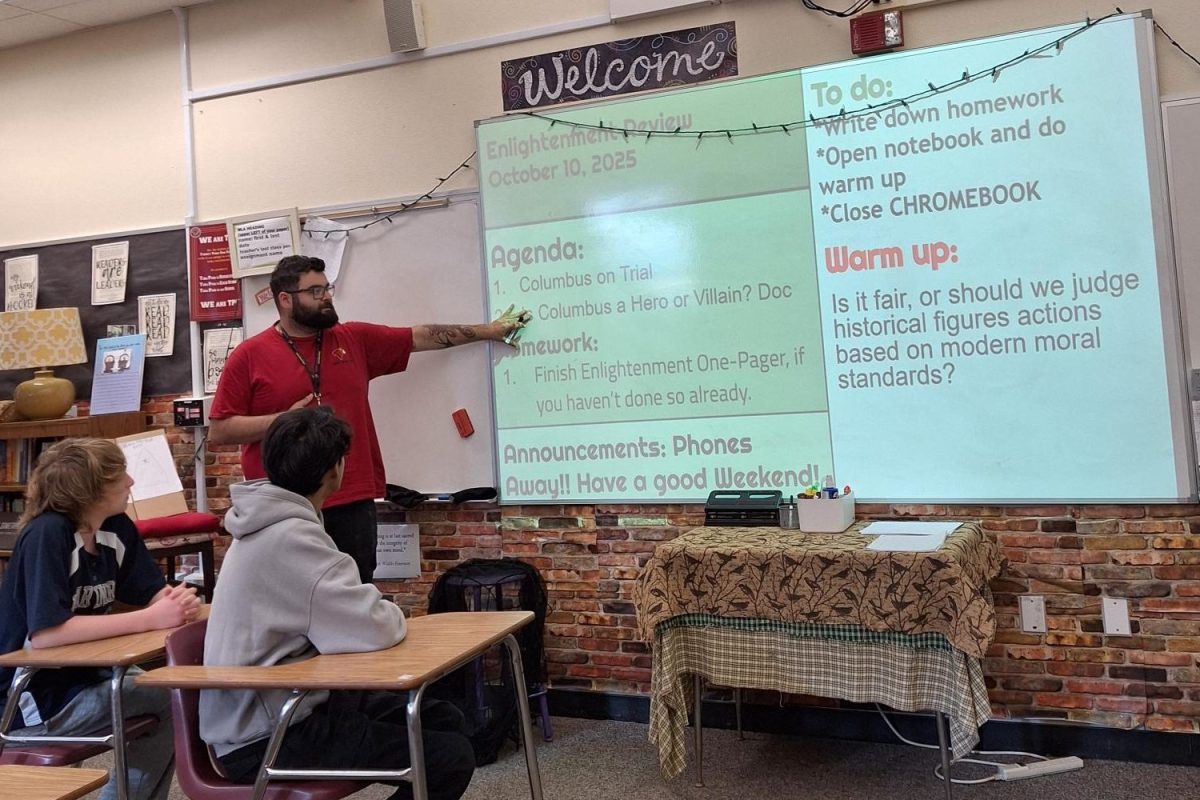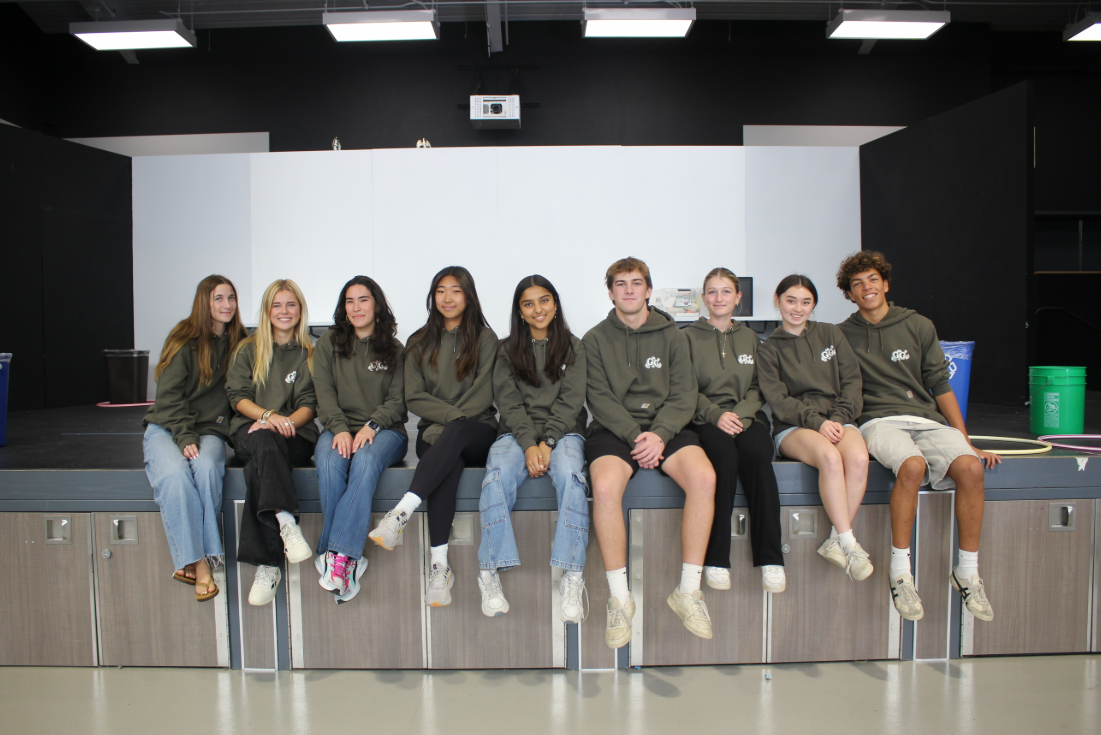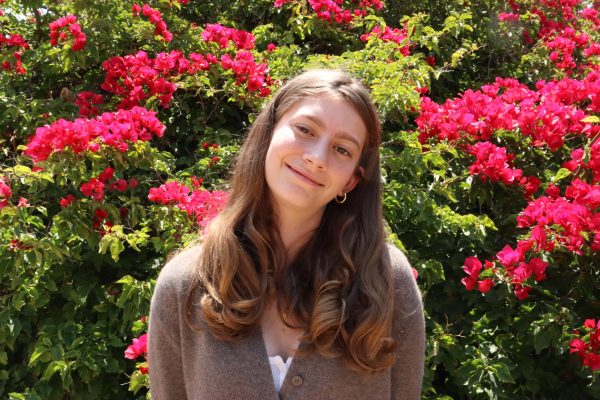From the lively streets of Spain to the charming cobblestone pathways of London, a world full of far away wonder and rich culture awaits students applying for international universities.
For Associated Student Body President Dean Smith (12), his brother inspired him to pursue the unique experiences studying abroad has to offer.
“My brother did his freshman year abroad in Paris, and I was able to visit him,” Smith said. “And seeing how much fun he had there, I felt inspired to kind of pursue a similar freshman year experience, if not an all four-year experience. And so then I just kind of started looking at different schools.”
Smith’s parents also encouraged him to apply abroad after seeing his brother’s positive experiences.
“My parents said that it was a really good option, and I know that before my brother’s freshman year of college, it wasn’t on my parents’ radar, but they were supportive of it, and they have always wanted me to do at least a year abroad,” Smith said.
For Tess Wheatley (12), going to school in Europe would be an opportunity to both reconnect with her roots and be closer to her family.
“My family is from Scotland, so I’ve spent a lot of time over there [and] I like it so much better there,” Wheatley said. “All of my family lives over there, so I think it was a dream come true [for my parents] to hear me say I wanted to go there [for school].”
Wheatley is applying to the University of Edinburgh, the University of Glasgow, the University of Durham, the University of Bristol and the University College of London. Her parents have been “incredibly supportive” of her application journey, understanding that going to Europe gives her better access to career opportunities.
“I want to go into environmental studies and eventually environmental law,” Wheatley said. “The European Union and the [United Kingdom] (U.K.) have a lot of amazing programs when it comes to environment and conservation efforts … I would definitely say they’re ahead of the U.S.”
In Smith’s case, one of the primary factors driving his decision to apply internationally is his interest in both fashion and business.
“So I’m applying to one school in Italy, which is [named Università Bocconi],” Smith said. “And I chose Bocconi because it’s in Milan, which is a fashion capital, and I want to do something in [the] fashion business, and Bocconi is a pretty well respected business school as well. And so it has that international reputation, especially within the fashion world.”
One difference Wheatley noticed when applying internationally to European universities was the greater weight Advanced Placement scores and standardized scores held, with extracurriculars less emphasized in comparison to her in-state or domestic applications.
“They’re very particular about [standardized] test scores and Advanced Placement scores, which I think is different from a lot of schools in the U.S.,” Wheatley said. “In the U.K. specifically they want to see lots of AP tests with minimum scores of four and above … They want to [see] how well you did in the school curriculum because theirs is just so different.”

Smith also noticed the focus on testing scores when applying to universities within the U.K.
“It’s super different … international schools focus a lot more on your AP scores or your standardized test scores, and that’s especially true for the schools in the U.K.,” Smith said. “For pretty much every school, especially the very selective ones, they’re very clear in detailing what you need to even apply there. In order to submit an application to some schools you need fours or fives on AP exams or you need an ACT score of 30 or above.”
Additionally, Wheatley found she was given more structure and clearer directions when it came to writing her personal statement and essays.
“For all my abroad schools, my personal statement was [basically] why our school, why your major, and what have you done to make yourself a good candidate … I would say [the asks] were a lot more straightforward [than in the U.S],” Wheatley said.
As a leader in ASB, Smith feels that the role he has taken on will help prepare him for being confident in himself while far away from home.
“The part of ASB that I would credit most towards making me feel inspired to apply abroad is the independence of it, and having the ability to be proactive and pursue my own interests within an ASB has shown me what I’m capable of,” Smith said. “And when you’re looking at starting a new life in college in a new country, I feel like having that confidence in yourself and your independence is very important.”
Spanish 4 and AP Spanish Language and Culture teacher Viviana Alvarado Gomez believes that students who apply abroad want to expand on their independence and self-confidence.
“When you go to a different country, you have to get used to a completely different environment and even sometimes different languages,” Alvarado said. “I think they’re looking to expand their knowledge and see what they are capable of.”
Smith looks forward to having the option of traveling around Europe just like his brother did, as well as finding a tight knit community through the different school systems.
“I would be really excited for the collegiate system [in the U.K], you choose a house or a dorm to be in and then there’s a common area, a pub, sports teams and programs for that specific house or accommodation dorm that you’re in,” Smith said. “It’s a little bit like Greek life in the sense where it narrows your community a little bit and helps you find your people.”
If she were to get accepted into a university in the U.K or Scotland, Wheatley looks forward to driving headfirst into the advanced environmental science programs these universities have to offer.
“After looking into all the [schools’] programs, I’m really excited because the majority of the schools I applied to have majors and programs for environmental [fields] that are so much better in comparison to here,” Wheatley said.
To Smith, broadening one’s cultural horizon isn’t just necessary to survive abroad, it’s also essential to communicating with others on a fundamental level.
“I think we live in a bubble, especially in San Diego … expanding [beyond] that really gives us a better understanding of how to deal with people,” Smith said. “no matter what you do, your career and your personal life is always gonna have to people in it … if you can get a more comprehensive understanding of the people of the world and the different backgrounds that they have, that will give you much better chance at connecting with others and refining your interpersonal communication skills.”
Alvarado also notices how experiences abroad can promote personal growth within her students.
“I used to do little trips with my students,” Alvarado said. “We really tried to immerse ourselves into the culture, [and] I always saw this huge change in them … they came back and always mentioned how they were so appreciative of everything they have … they learn a lot about themselves.”
Although being an ocean away from the familiar can be an uncomfortable and challenging experience, Smith encourages students to take advantage of the opportunity.
“I think so many people, when they think of college, they’re really just thinking of places in California or places in the States, that they don’t realize there’s a whole world out there,” Smith said. “And so it can feel unfamiliar, and it can feel scary and daunting going into the whole process of applying abroad … if you really just take the time and the energy to look at options everywhere in the world, then I think it is a very worthwhile pursuit.”









